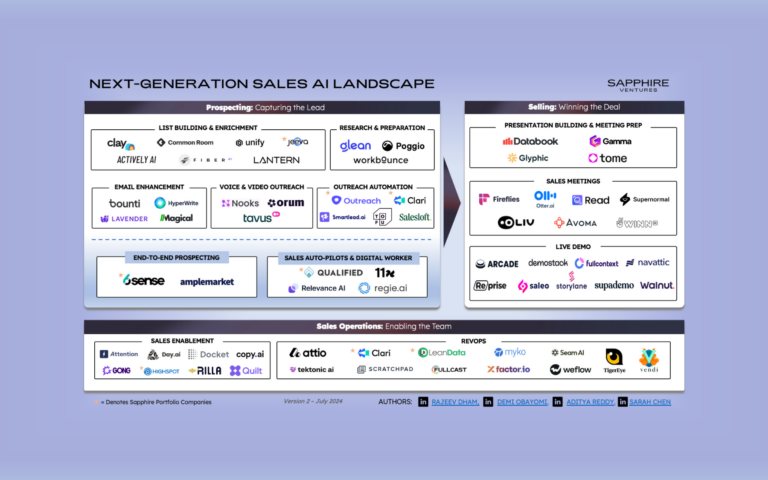
Following a seismic 2021, a year which broke records for the scale of investment flooding into Europe, and a solid start to 2022, the pace of innovation on the continent remains strong. Here, we identify 5 trends we believe will define the European technology scene as the rest of the year unfolds.
More European tech hubs will flourish
Over recent years, the key tech hubs of London, Berlin and Paris have continued to flourish; flying the flag for European tech as its ecosystem has developed. In France, for example, we’ve seen the rise of accelerators such as Station F and mega rounds raised by start-ups including Qonto, Sorare and Shift Technology. And at Sapphire, we’re excited to be working with French companies such as Gorgias and GitGuardian as we deepen our presence in the market.
Startups in the UK continued their trend of attracting the most venture funding in Europe, with London holding on to its crucial place at the centre of the European landscape. But tech hubs such as London, Paris and Berlin are being joined by a huge raft of new cities, and in 2022 this existing trend looks set to deepen.
According to Dealroom, of the 170 cities globally that have at least one unicorn, 65 are in Europe–the highest of any region in the world.
According to Dealroom, of the 170 cities globally that have at least one unicorn, 65 are in Europe–the highest of any region in the world.
Technology markets in other European countries, such as Estonia and the Czech Republic, are strengthening their status as flourishing centres of innovation. Such a spread of success stories creates a multitude of slipstreams where innovation can flourish and scale. Cities across Europe will see their stars shine brighter this year.

The decacorn is the new unicorn
Following years of intense VC activity, European startups are raising more funds, earlier. That means they are scaling quicker. The result? More and more startups are hitting unicorn status. As the market in Europe matures, so will the number of companies reaching critical growth benchmarks such as this. But it also means many more will go beyond unicorn status and reach ‘decacorn’ status (when a start-up has a valuation of more than $10 billion) in 2022.
Companies like Wise (a Sapphire portfolio company, which went public last year on the London Stock Exchange) and Revolut have already surpassed this hurdle. There are already over 40 decacorns currently in Europe and we predict that 2022 will be the year of the decacorn, with many more names joining these ranks. Within the year’s first quarter, speedy delivery start-up Getir has achieved this status following a $768 Series E round.
Female founders will break records
We believe that female founders will break records this year, with more women leading mega-rounds. We predict that this year will see the biggest round ever raised by a female founder. This follows groundbreaking raises last year from the likes of Papaya Global’s Eynat Guez, who picked up $250 million in their Series D, Anne Boden, of Starling Bank, who raised £272m in 2021, and Eléonore Crespo of Pigment, who took in $73M last year. There is a recognition across the industry that female founders have been too routinely overlooked for too long.
Because there is still huge work to be done when it comes to backing female founders who continue to attract a tiny percentage of overall European VC funding, the numbers simply don’t reflect the depth of talent and innovation emanating from female-led businesses. Diverse teams win and all investors should be looking to ensure their portfolios reflect the breadth and diversity of the societies they are operating in.

European founders will give back and experienced operators will step up
As more European founders go public or experience an acquisition, there will be more people using new found wealth and industry status to give back to the ecosystem and help it flourish.
Daniel Ek, founder of Spotify, has already committed €1 billion to back European ‘moonshot’ projects. He wants to help companies across machine learning, biotechnology, materials sciences and energy that have the potential to affect game-changing societal impact. We predict that more and more founders will follow in his footsteps and commit capital and resources to the ecosystem’s more daring innovations and underserved communities.
The rise of successful exits will also accelerate an increase in the number of experienced operators launching their own companies. More team members at successful startups, those who had a front row seat on the journey and played a vital role in growth, will start their own companies. Bringing with them the lessons, learnings and experience of scaling successful startups, these leaders are on track to create another generation of companies of consequence.
Specialist funds will proliferate and thrive
With the record breaking amount of capital flowing into venture as an asset class, we believe that specialisation (sector, geographic or otherwise) is going to be hugely important for firms to effectively compete and rise above the noise. This is equally true in Europe as in the U.S.
In the U.S., this trend has been well under way for a while, with biotech, crypto and sustainable tech funds emerging. Meanwhile we see teams at bigger, brandname firms are becoming more specialised. This sector-specific domain expertise is increasingly evident in Europe, and we expect European managers to further lean into specialisation as a differentiator – particularly as the competition among firms keeps heating up.
That said, it’s important for funds to be mindful of how narrowly defined their sector is. It’s ideal to be specialist enough to be differentiated in the ecosystem and provide relevant expertise, but also to maintain enough latitude to make sure you can catch those outliers that will drive true outsized performance.
Overall, the picture for Europe looks increasingly bright. Following a year of unprecedented investment, Europe in 2022 so far is on track to deepen its credibility as a technology powerhouse and create an even greater number of impactful companies and game-changing founders.
Legal disclaimer
Disclaimer: Nothing presented within this article is intended to constitute investment advice, and under no circumstances should any information provided herein be used or considered as an offer to sell or a solicitation of an offer to buy an interest in any investment fund managed by Sapphire Ventures (“Sapphire”). Information provided reflects Sapphires’ views as of a time, whereby such views are subject to change at any point and Sapphire shall not be obligated to provide notice of any change. The information contained herein is not an investment recommendation, and may not be relied on in any manner as, legal, tax, or investment advice. While Sapphire has used reasonable efforts to present observations from analysis using the internal model presented, Sapphire makes no representations or warranties as to the accuracy, reliability, or completeness of observations presented within this document. Companies mentioned in this article are a representative sample of portfolio companies in which Sapphire has invested in which the author believes such companies fit the objective criteria stated in commentary, which do not reflect all investments made by Sapphire. A complete alphabetical list of Sapphire’s investments made by its direct growth and sports investing strategies is available here. No assumptions should be made that investments listed above were or will be profitable. Due to various risks and uncertainties, actual events, results or the actual experience may differ materially from those reflected or contemplated in these statements. Nothing contained in this article may be relied upon as a guarantee or assurance as to the future success of any particular company. Past performance is not indicative of future results.





